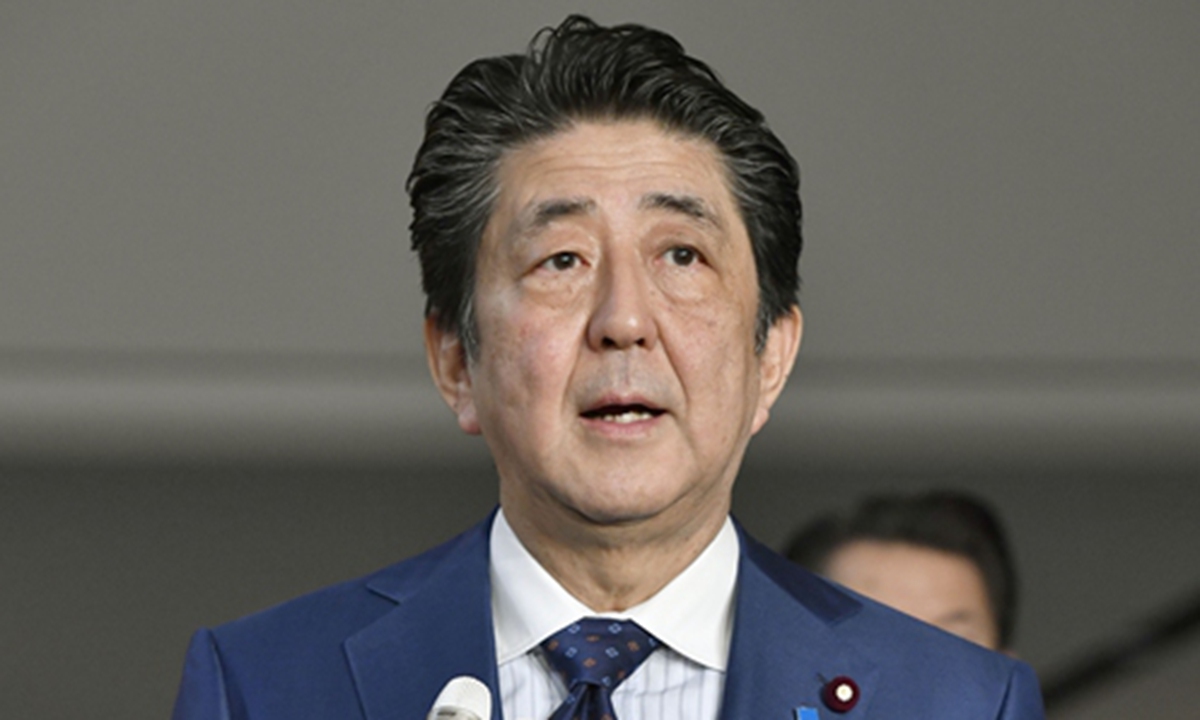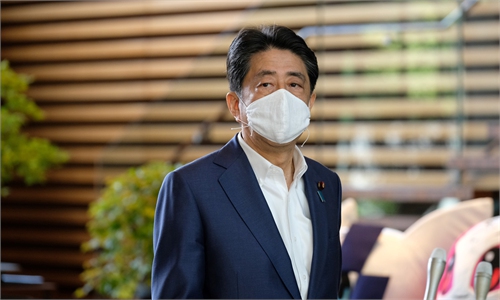
Former Japanese prime minister Shinzo Abe Photo: IC
After Shinzo Abe stepped down from the position of prime minister of Japan, he has become more unrestrained in unleashing his anti-China energy. With his recent attacks on China, especially repeated provocations over the Taiwan question, he has turned into the chief anti-China politician in Japan.
When he attended the Taiwan-US-Japan Trilateral Indo-Pacific Security Dialogue via video link on Tuesday, the former Japanese leader clamored that Taiwan must be a leader among democracies. He said there was a threat to Taiwan and its democracy, which is "a dire challenge to all of us, especially to Japan." Abe made absurd claims such as when the US, Japan and other partners brought together their democratic power, "an adventure in military affairs, if pursued by such a huge economy like China's, could be suicidal to say the least."
Two weeks ago, Abe claimed that "a Taiwan emergency is a Japanese emergency," threatening that it would be an "economic suicide" for Beijing if the mainland launches a reunification by force. Abe has frequently thrown vicious slander against China, which completely shows that he is sparing no effort to incite Japan and the international community's hostility toward China.
Obviously, Abe dared not say these words when he was previously in office and he started to act wantonly after leaving office. Chinese people should see through his words and acts in and out of office, and the reasons behind these difference
Japanese right-wing politicians represented by Abe hold deep hostility toward China. They do not reflect on the history of Japan's invasion of China. Instead, they hate today's China. They hope that they can cooperate with the US' suppression against China's rise and recover Japan's past glory to lead Asia's economic and comprehensive strength and revive their Great Asianism ambition. They are going too far in the wrong path, even putting themselves on a position where they would be willing to play with fire.
It is noticeable that Western democracy is suitable to produce political villains like Abe, who instigate confrontation between countries. These villains erode and destroy peace and cooperation like cancer cells. Therefore, it is unrealistic to try to communicate with those extreme anti-China politicians, hoping to improve their attitude toward China. Only through continuous growth of power can China build its prestige before them and make them realize the unaffordable risks of following the US radical anti-China policy, change their tough posture against China, and avoid confrontation with China as Japan's safe strategic choice.
It must be pointed out that the Japanese government also has the responsibility and obligation to restrain the arrogant actions of anti-China politicians. Abe's recent extremely erroneous remarks on the Taiwan question are a serious violation of basic norms of international relations and the principle of the China-Japan four political documents. Responding to it can test whether Tokyo's words and deeds are consistent. After all, Japanese Prime Minister Fumio Kishida recently expressed the attitude that "the two countries must take the opportunity of next year, which marks the 50th anniversary of the normalization of Japan-China relations, to establish a constructive and stable relationship."

